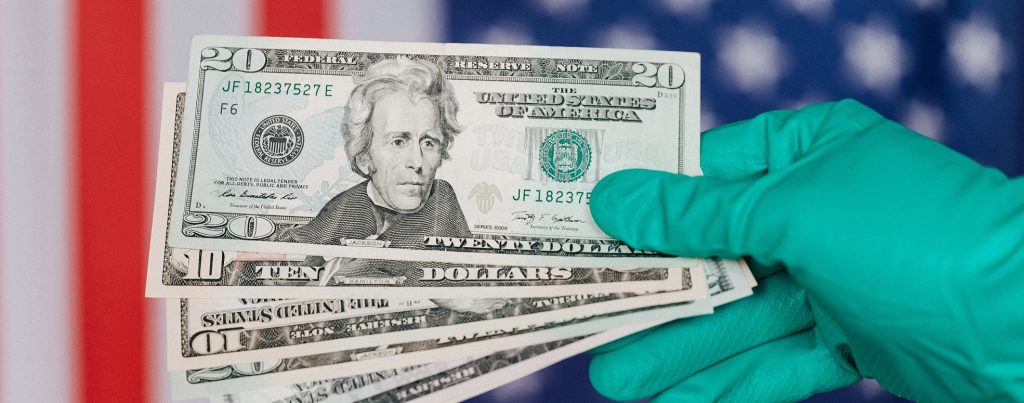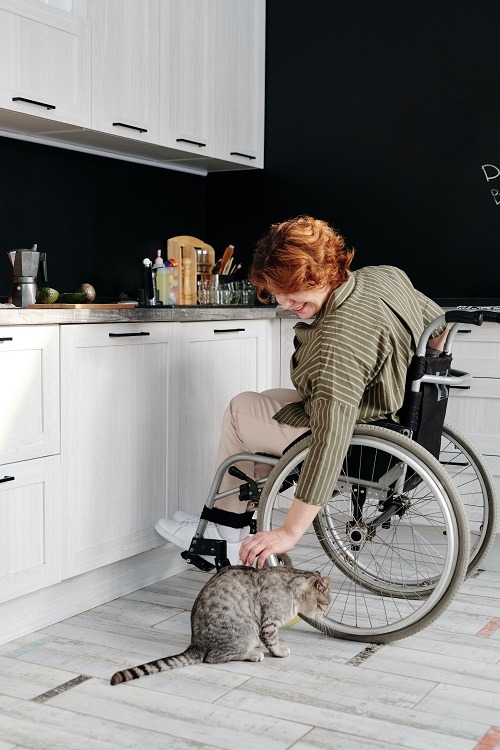
Lawmakers in North Carolina hope to provide financial protection for hundreds of thousands of people in medical debt. Medical debt is not only the leading cause of bankruptcy, it turns out. It can actually lead to the loss of homes.
How can patients’ financial safety be guarded? A bipartisan bill in North Carolina called the Medical Debt De-Weaponization Act aims to do it. If it passes, it will make the state a leader in dealing with medical debt practices.
Here’s the story.
Deed of Trust as a Claim to Home Equity
Terry Belk and Sandra Belk co-owned their North Carolina home. Each had a personal struggle with cancer. Insurance didn’t cover all the costs. They couldn’t pay the balance.
Terry Belk reported being “bullied” by the hospital company’s lawyer. And in 2005, Terry and Sandra signed a deed of trust, securing the home to the hospital debt for Sandra, who would die in 2012 from metastatic breast cancer. The deed of trust gave the company a claim against the title, for $23,311 in home equity.
Medical groups regularly file legal actions against people to collect money from unpaid or underpaid bills. Unsurprisingly, the debt collectors tend to hound people like the Belks — members of minority groups and people with modest incomes. Also vulnerable? People who live near health hazards. In the 100 U.S. counties with the most residents suffering from ongoing illnesses, about a quarter of the adult populations also suffer from the crushing impact of medical debt on their credit profiles.
All the while, medical companies are pulling in large profits. In North Carolina, lawmakers believe more of that revenue should be redirected to assistance for patients who aren’t able to cover their medical costs.
Essentially Turning Owners Into Renters

A former leader of the local NAACP, Terry Belk isn’t one to suffer in silence forever. After years under pressure, Belk contacted investigative reporters with the local television station WBTV.
The news team uncovered five more deeds of trust recorded with the Mecklenburg County Register of Deeds on various homes — all by the same corporation that went after the Belks. That adds up to six different households, their titles clouded by debt. None will be able to sell their homes without satisfying the medical and debt collection corporations.
The investigation further uncovered a slew of court judgments that became liens on titles — connected with debts owed to the very same medical company.
All this legal targeting, Terry Belk told the news station, allows a medical corporation to essentially treat patients as renters. Any company that places a deed of trust or lien on a home can force a debtor to pay up or sell the house. Given this pricey real estate market, that’s not a far-fetched concern.
A recent Kaiser Family Foundation poll indicates that medical bills are a factor in millions of U.S. residents’ evictions and foreclosures.
Since Terry Belk called them, the news reporters have found more than 100 medical debt lawsuits filed against people last year by this same company.
Downward Spirals
A medical judgment often leads to a downward spiral, with years of interest, attorney fees, and damage to the debtors’ credit scores all in play. It also leads many patients to live in fear of losing the roofs over their heads.
Some of them request forbearance from their mortgage companies. If that doesn’t work, another way out of a medical debt lien is through a bankruptcy filing. Indeed, one in every eight adults with medical debt have been forced into bankruptcy, according to Kaiser Health News.
Sometimes, bankruptcy is the only way to stop that spiral. It can result in a payment plan to satisfy the lien — in some cases, with a partial discharge of debt at the end of the schedule.
Under increasing scrutiny, the three major credit agencies just this year announced they would remove paid-off medical debts from their scoring systems. They also promised to stop figuring minor medical debts (under $500) into credit scores. What about major medical debts, though? A torpedoed credit profile can keep a person in poverty with no way out.
Status of the Medical Debt De-Weaponization Act

The Medical Debt De-Weaponization Act would force North Carolina’s hospital companies to work with patients in need. Among other things, it would:
- Require hospitals to provide a sliding scale of costs for individuals and households. A person with an income of under $27K, for example, would be treated at no charge.
- Mandate easy-to-manage medical payment plans.
- Cap out-of-pocket costs for most people at $2,300 per year.
- Ban foreclosures against homeowners for their medical debts.
Now, we’re waiting to see whether North Carolina’s lawmakers will indeed de-weaponize medical debt. State Rep. Ed Goodwin, the proposed law’s Republican sponsor, is counting on bipartisan support. But in order to happen in this legislative session, the bill would have to get through the state’s House and Senate within the next few days.
Debt on a National Scale
More than 100 million people across the country are dealing with past-due medical bills. The problem is faced by 41% of adults, according to the Kaiser Family Foundation poll. What is being done? California, Maine, New Mexico, and Maryland all ban medical corporations from placing liens on their patients’ homes. A number of other states already force hospitals to offer treatment on a sliding income scale. Others restrict various of collection methods, including lawsuits against patients.
But some states, including the Carolinas, Texas, and Tennessee, offer patients very little in the way of financial protection. And in many places, medical and debt collection trade groups have lobbied to scuttle legislative reforms.
We credit the National Consumer Law Center for its focus on promoting the following legislation related to this article:
- H.R. 2537 (stage: introduced): the Consumer Protection for Medical Debt Collections Act.
- S. 355 (stage: introduced): the COVID–19 Medical Debt Collection Relief Act of 2021.
If you’d like to contact your U.S. representatives, look them up. The National Consumer Law Center also encourages us to tweet to our lawmakers.
Pressing for national action makes good sense. People should never have to worry that they’ll lose their homes because they have to go to the hospital.
Supporting References
Noam N. Levey and Aneri Pattani for Kaiser Health News (via TahlequahDailyPress.com): Upended: How Medical Debt Changed Their Lives (Jul. 9, 2022).
Aneri Pattani for Kaiser Health News/NPR: Medical Bills Can Shatter Lives. North Carolina May Act to “De-Weaponize” That Debt (Jul. 17, 2022). Kaiser Health News is a part of the Kaiser Family Foundation.
David Hodges for the WBTV Investigates Team (Charlotte, North Carolina): Charlotte Woman on the Hook for $40,000 in Medical Bills From Lawsuit She Didn’t Know About (Jul. 21, 2022, via WDBJ / CBS News 7).
David Hodges for the WBTV Investigates Team (Charlotte, North Carolina): Medical Debt and Deeds: How Hospitals Use Homes to Collect (Jun. 13, 2022).
Briana Harper for WCNC (Charlotte, North Carolina): N.C. Lawmakers Seek Protection for Patients Facing Medical Debt (updated Jun. 29, 2022).
And as linked.
Photo credits: Karolina Grabowska, Barbara Olsen, and Marcus Aurelius, via Pexels.
